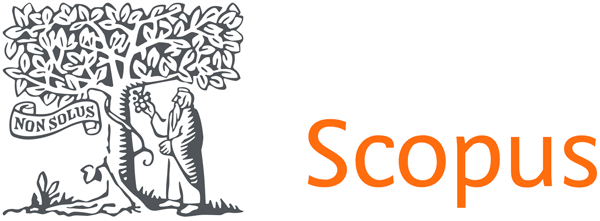Assessing Students' Critical Thinking Skills in Terms of Cognitive Style: A Study of the Application of the Inquiry Collaborative Based V-Lab Model in Programming Courses
DOI:
https://doi.org/10.35145/jabt.v5i2.165Keywords:
Critical Thinking, V-Lab Model, Programming, Collaborative InquiryAbstract
This study explored the assessment of students' critical thinking skills in programming courses by considering individual cognitive styles. We apply the inquiry collaborative-based V-Lab model as a learning approach, allowing students to participate in virtual experiments and interactive simulations. This approach is applied to a programming class, taking into account the student's cognitive style as the determining factor. We use measurement methods that include solution analysis, problem-solving, and critical thinking of students. The results showed that the V-Lab model based on collaborative inquiry was effective in improving students' critical thinking skills, with variations in its effect depending on the individual's cognitive style. The implications of these findings are presented for the development of more adaptive and effective learning approaches in programming courses, as well as for further research into the interaction between cognitive styles and technology-based learning.
References
Al-Hattami, H. M. (2023). Understanding perceptions of academics toward technology acceptance in accounting education. Heliyon, 9(1), e13141. https://doi.org/10.1016/j.heliyon.2023.e13141
Dada, D., Laseinde, O. T., & Tartibu, L. (2023). Student-Centered Learning Tool for Cognitive Enhancement in the Learning Environment. Procedia Computer Science, 217, 507–512. https://doi.org/10.1016/j.procs.2022.12.246
Deutsch, R. (2020). Critical Creative Thinking. Think Like an Architect, 2008, 131–135. https://doi.org/10.4324/9781003108535-39
Djenic, S., & Mitic, J. (2017). Teaching strategies and methods in modern environments for learning of programming. 14th International Conference on Cognition and Exploratory Learning in the Digital Age, CELDA 2017, Celda, 189–196.
Gulsum Asiksoy. (2023). Effects of Virtual Lab Experiences on Students’ Achievement and Perceptions of Learning Physics. Online and BIomedical Engineering, 19(11), 31–41.
Irwan, I., Susanti, W., Desnelita, Y., Gustientiedina, G., Wongso, F., & Fudholi, A. (2022). Problem-based Collaborative Learning Strategy in Computer Programming. SAR Journal - Science and Research, 5(1), 40–45. https://doi.org/10.18421/sar51-05
Irwan, Y. D. W. S. G. D. O. R. N. P. (2021). The Application of Computer Adaptive Test Using Expert System in E-Learning. Annals of the Romanian Society for Cell Biology, 25(6), 5962–5974. https://annalsofrscb.ro/index.php/journal/article/view/6615
Kaczkó, É., & Ostendorf, A. (2023). Critical thinking in the community of inquiry framework: An analysis of the theoretical model and cognitive presence coding schemes. Computers and Education, 193(January 2022). https://doi.org/10.1016/j.compedu.2022.104662
Kwangmuang, P., Jarutkamolpong, S., Sangboonraung, W., & Daungtod, S. (2021). The development of learning innovation to enhance higher order thinking skills for students in Thailand junior high schools. Heliyon, 7(6), e07309. https://doi.org/10.1016/j.heliyon.2021.e07309
Lithoxoidou, A., & Georgiadou, T. (2023). Critical Thinking in Teacher Education: Course Design and Teaching Practicum. Education Sciences, 13(8). https://doi.org/10.3390/educsci13080837
Ritonga, A., Husein, R., & Widiasih, W. (2022). The Influence of Inquiry Learning Model and Critical Thinking Ability on Student Learning Outcomes. Edukatif : Jurnal Ilmu Pendidikan, 4(5), 6538–6544. https://doi.org/10.31004/edukatif.v4i5.3751
Susanti, W., Jama, J., Krismadinata, Ramadhani, D., & Nasution, T. (2021). An overviuw of the teaching and learning process basic programming in algorithm and programming courses. Turkish Journal of Computer and Mathematics Education, 12(2), 2934–2944. https://doi.org/10.17762/turcomat.v12i2.2332
Susanti, W., Sukrianto, D., & Ramadhani, D. (2020). Pengaruh Model Discovery Learning dalam Kemampuan Berpikir Kritis dan Cognitif Mahasiswa Program Studi Sistem Informasi. 20(3).
Susanti, W., Tendra, G., Siswati, S., Nasution, T., Panyahuti, & Simeru, A. (2023). Virtual Programming Laboratory in Collaborative Inquiry Learning to Improve Higher Order Thinking Skills for Work Readiness in the Industrial World. Paper Asia, 39(6), 63–70. https://doi.org/10.59953/paperasia.v39i6(b).51
Susanti, W., Tendra, G., Yuliendi, R. R., & Simeru, A. (2023). The Inquiry Collaborative Learning Design Virtual Laboratory Based and Remote Virtual. Indonesian Journal of Informatics Education, 7(1), 1–7.
Taimur, S., & Onuki, M. (2022). Design thinking as digital transformative pedagogy in higher sustainability education: Cases from Japan and Germany. International Journal of Educational Research, 114(November 2021), 101994. https://doi.org/10.1016/j.ijer.2022.101994
Angelyn, J., & Putri, R. N. (2021). Diagnosis System Design of Depression and Anxiety with NAÏVE BAYES Method. Journal of Applied Business and Technology, 2(2), 92–97.
Susanto, E., Gustientiedina, G., & Siddik, M. (2024). Application of the Forward Chaining Method in Diagnosing Tomato Fever. Journal of Applied Business and Technology, 5(1), 41–50. https://doi.org/https://doi.org/10.35145/jabt.v5i1.143 1.0





